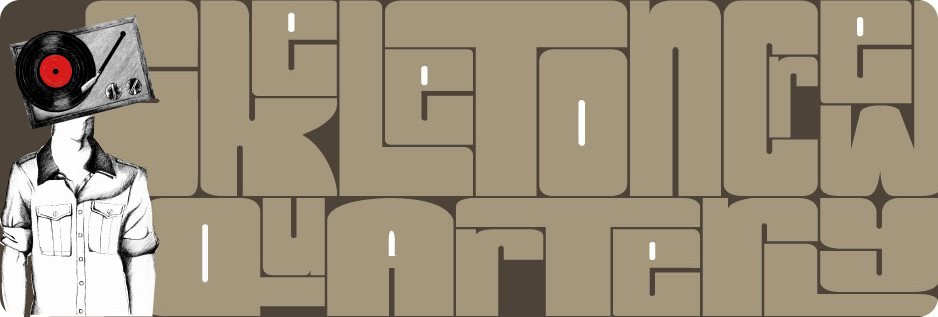
Crystal Castles (II)
Crystal Castles
Polydor/Fiction Records.
SCQ Rating: 68%
Crystal Castles – yeah, the first self-titled album by Toronto’s favourite electro-thrash duo – was a tad over-hyped and SCQ shares part of that blame. After such a frantic build courtesy of concert-goers’ word-of-mouth and sold-out EPs, my role as Toronto blogger and electronic enthusiast bled all over SCQ’s review of their debut. Like an early Best Of compilation, Crystal Castles contained most of their pre-recorded material already celebrated by the blogger community at large, with only three tracks being recorded specifically for the full-length. And the messy, uncoordinated nature of its sixteen-track pile-up sounds obvious two years later, although it's no less enchanting. Volatile as it hopped along, the debut’s only assertion was that Crystal Castles write a lot of punishing electronic songs that value shock-and-awe over nuanced sequencing. Its allure was found in the details they couldn’t bother to iron out.
While the hype for CCII has trumped that original release, their message, if any, remains latched onto the nature of their full-length; that written and recorded as a single project, CCII features a unified ebb and flow. Ethan Kath and Alice Glass aren’t pontificating any deeper subject matter here but the mood is undoubtedly darker, creating atmospheric club-anthems for goths like ‘Suffocation’ and ‘Year Of Silence’ (which curiously samples a Jonsi vocal from Sigur Ros’ last record). Trading left-field antics for deliberate new-wave prodding, Crystal Castles have honed their sonic markers into the more accessible and popular electro resurgence, with highlight ‘Celestica’ going the greatest to prove this duo might have the chops to craft a lasting career in the spotlight. Single-extractions aside, CCII becomes burdened by its own menacing with wallowing synth-stabs that test one’s attention span (‘Violent Dreams’) and occasionally grate the ears (‘Doe Deer'). Where their debut balanced these aggressively heavy beats with shimmering drifters, Crystal Castles submit no spacious experiments here. 'Magic Spells’, this ain’t, but ‘Suffocation’ is closing in on the vibe.
There is hope amid all these nihilistic shades of eyeliner. Compared to CCII’s noisier moments, ‘Not In Love’ sounds like brilliant bubble-gum pop created by nocturnal DJs, mixing effect-riddled vocals to an emotionally stirring coda. And while a track like ‘Baptism’ remembers the 8-bit sensation that brought Crystal Castles to global attention, its raw originality loses impact when adapted into 2010’s trance-exploitation. Kath and Glass are playing elusive on CCII and, when you consider that one of their top songs, ‘Alice Practice’, was a microphone test recorded without their knowledge, playing elusive makes sense.














